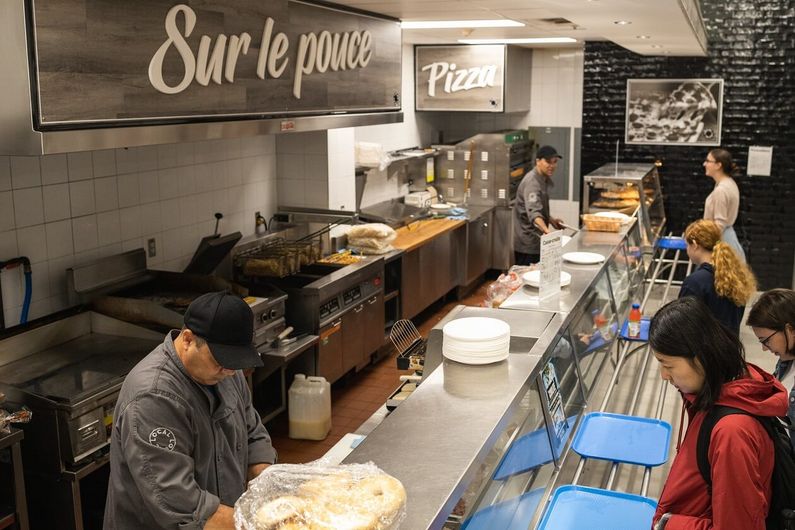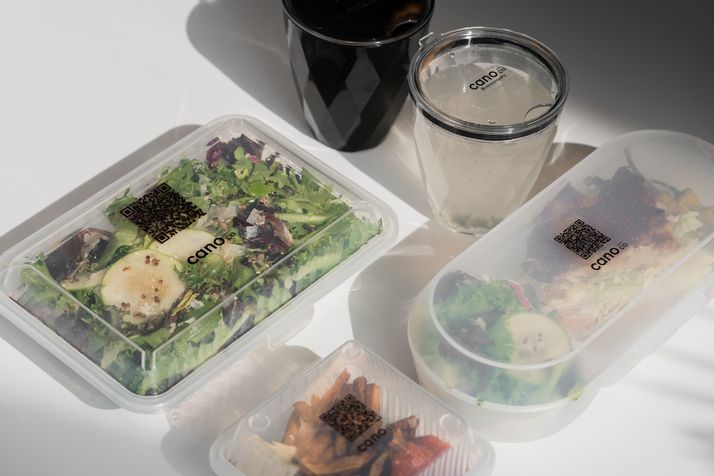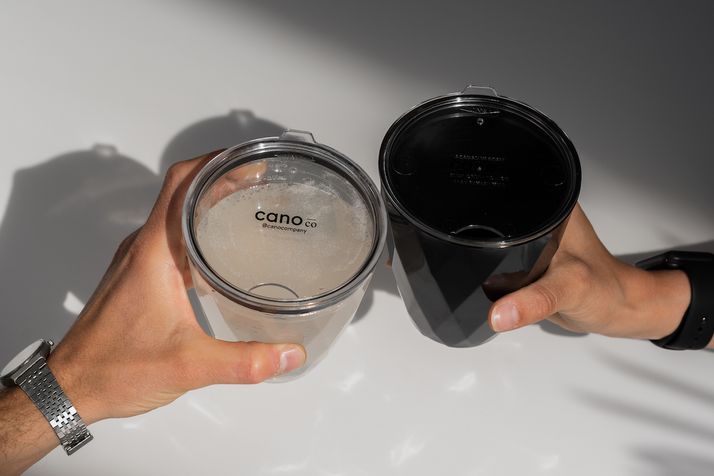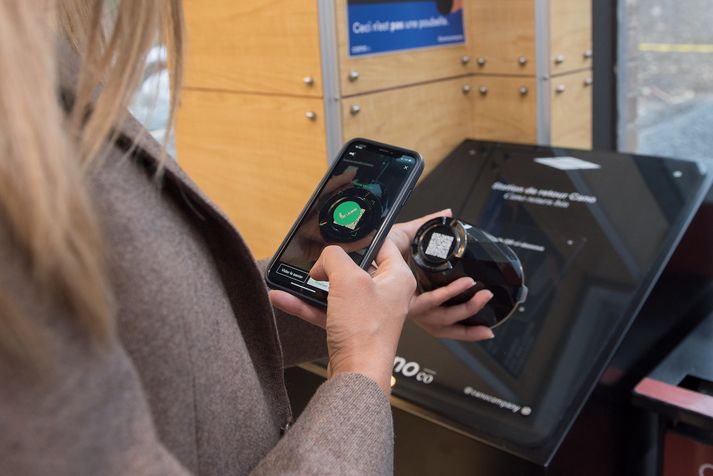UdeM says goodbye to single-use containers
- Salle de presse
01/20/2023
- UdeMNouvelles
UdeM’s food purveyors are eliminating single-use food containers – paper as well plastic – starting Feb. 6.
Last September, Pascal Prouteau, Université de Montréal’s director of residences, hospitality and food services, was taking inventory of his large stock of take-out containers when an idea occurred to him.
“Why don’t we,” he remembers thinking, “take advantage of the summer break we’ve just had and figure out a way replacing take-out containers with more sustainable alternatives?”
He was ahead of the curve: within a few months, the City of Montreal passed a bylaw that will require restaurants and food counters to eliminate single-use containers.
Had Prouteau been prescient?
“It was more a matter of luck,” he says. “The municipal bylaw will support our efforts to move towards zero waste.”
Starting Feb. 6, Prouteau’s staff will remove all single-use containers from the food counters on UdeM campuses. Paper coffee cups, plastic utensils, lids and stir sticks, and other disposable items will no longer be available to use.
The ban will take effect one month before the Montreal requires restaurants and food counters to remove many single-use items.
So many containers available
Why is this being done now, when there are so many recyclable and compostable containers available on the market, such as the cardboard coffee cups sold at UdeM’s Local Local food service locations?
“Because all packaging has its problems,” Prouteau replied. “First of all, we have to count on consumers to do the right thing when they dispose of the containers.”
According to the university’s buildings department, many recyclable cups end up being tossed into trash bins, and conversely a good number of non-compostable cups find their way into UdeM’s compost bins.
Then there’s the fact that the waste management industry hasn’t always been able to keep up with new green technologies.
“Some of our compostable containers are made from corn powder,” said Prouteau. “In theory, it’s great, but the problem is that there’s no facility in Quebec that can process these containers, so they end up in the garbage.”
The ideal solution is to eliminate all single-use containers, no matter how environmentally friendly, he said.
“What’s even better than recycling or composting containers is reusing them: just don’t have cups and plates that will be used only once.”
Disrupting people’s habits
Prouteau realizes the ban will disrupt people’s habits, but is confident they’ll get used to it.
“We’ll probably go through a rough patch at first,” he acknowledged. “But remember how it was with plastic grocery bags: when they were banned, customers complained at first and we all forgot to take our reusable bags when we went shopping.”
For people who eat in the Chez Valère cafeteria, where porcelain dinnerware and utensils have already replaced disposables. nothing will change.
But if you take coffee to go, watch out: you’ll have to either bring their own mug, buy a Local Local reusable mug or use the Cano container lending service.
The same applies to take-out meals: it will be possible to borrow a Cano container or buy single stainless0steel utensils at the checkout counter. “We sell the utensils at cost,” said Prouteau. “We aren’t making a penny on it.”
Not cost-free
The move is not cost-free for UdeM. A new deputy head of food services was recently hired to deal with the logistics of the Cano program, among other things. And since the service’s employees will be responsible for cleaning the Cano reusable cups and containers, more dishwashers will have to be hired.
All employees will have to know about the available options in order to explain them to customers. The process started on Jan. 10, when Local Local’s 45 employees came to work at 6 a.m. for training on the elimination of single-use containers.
“None of this is being done for money,” Prouteau stressed. “We want to do our part to achieve zero waste. And we need the help of the entire community to get there. As a university, we have a duty to set an example.”
Local Local is also working with student-run cafes that have decided to offer the Cano service.
“Since we’re set up for washing Cano utensils at Local Local, we are more than happy to support student cafes and help as many people as possible make the switch,” said Prouteau.
Local Local operates five food counters, the Chez Valère cafeteria, a catering service and a convenience store at the UdeM residences. This month, it will open a new hot lunch counter, including a pasta bar, in Pavillon Jean-Coutu.
A quick guide for consumers
Coffee to go?
- Bring your own mug or borrow a Cano cup.
Food to go?
- Borrow a Cano food container and buy reusable stainless steel utensils at the checkout counter.
Coffee and food to eat at Chez Valère?
- Use the porcelain dinnerware and stainless steel utensils provided by the cafeteria.
How Cano works
Cano provides a reusable cup and food-container lending service. Simply download the Cano app to your smartphone. You can then create an account to earn reward points or just borrow cups and containers without registering or providing personal information. You scan the items you’re borrowing using the app and return them to the Cano bins after you’re done with them.
Cano cups made their debut at UdeM in 2018, at Chez Valère. Since September 2022, it has been possible to borrow Cano cups at all Food Services counters.
















